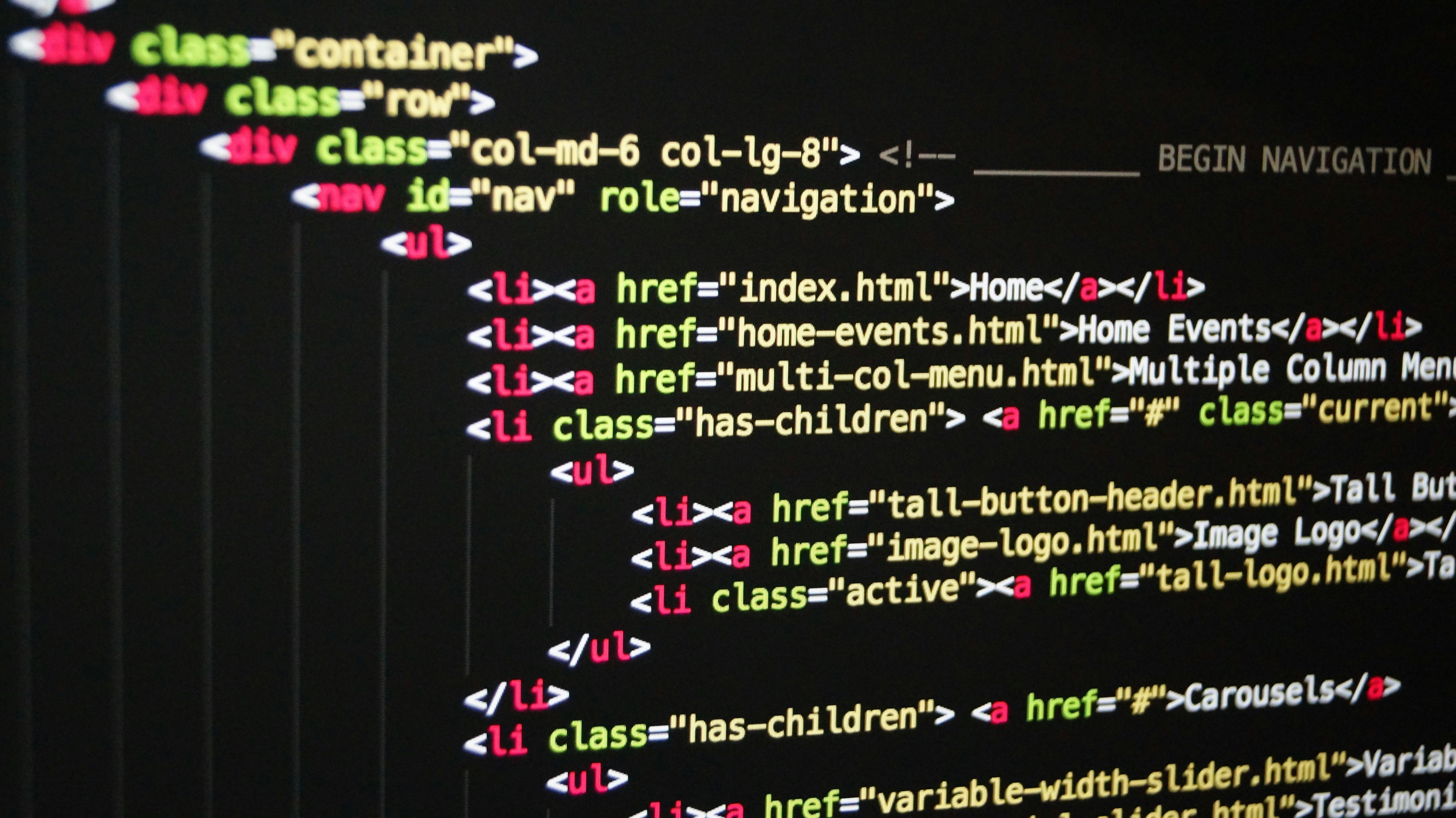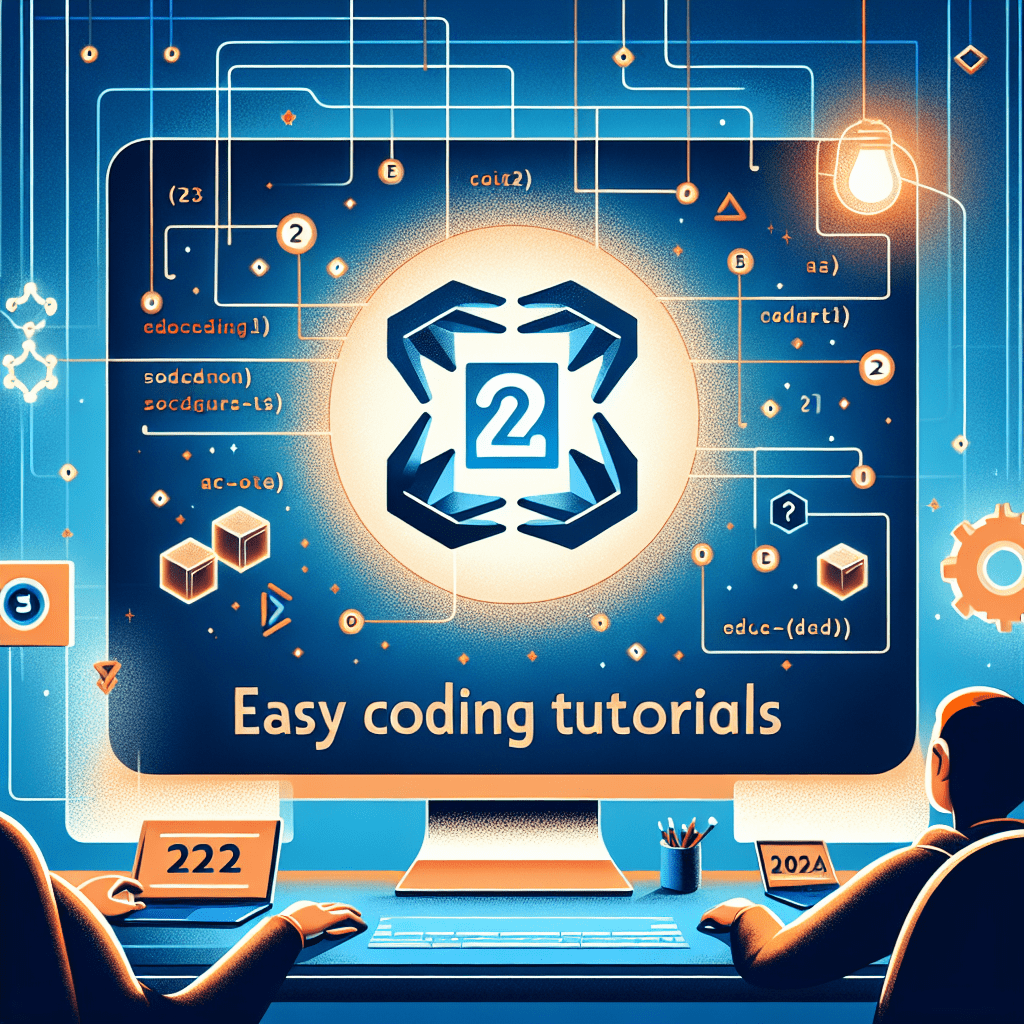If you’ve ever wanted to explore the world of coding and start programming, 2024 is the perfect year to do so! With our easy-to-follow tutorials, even beginners can quickly grasp the fundamentals and get started on their coding journey. Whether you’re interested in web development, app creation, or data analysis, these tutorials will provide you with the necessary skills and knowledge to thrive in the exciting field of coding. So, grab your computer and get ready to dive into the fascinating world of programming in 2024!
Why learn coding in 2024?
In the digital age, coding has become an increasingly important skill. From the development of mobile apps to the creation of complex website designs, coding is the foundation of these technological advancements. Whether you are interested in a career as a programmer or simply want to understand and navigate the digital world, learning to code in 2024 will open up a world of opportunities for you.
The importance of coding in the digital age
Coding is the language of the digital age. As technology continues to advance at a rapid pace, it is crucial to have a basic understanding of coding in order to adapt and thrive in an increasingly digital world. Knowing how to code allows you to have a greater understanding of the technology you interact with on a daily basis, from the software on your computer to the apps on your smartphone.
Furthermore, coding is a valuable skill for problem-solving and critical thinking. By learning to code, you develop logical thinking skills and the ability to break down complex problems into smaller, more manageable parts. These problem-solving skills can be applied to a wide range of situations, both within the realm of coding and beyond.
Increasing demand for programmers and developers
With the increasing reliance on technology, there is a growing demand for skilled programmers and developers. According to the Bureau of Labor Statistics, the job market for software developers is projected to grow by 22% from 2020 to 2030, much faster than the average for all occupations. This high demand presents numerous job opportunities for individuals with coding skills.
In addition to the job market, there is also a demand for freelance programmers and developers. Many companies and individuals are seeking professionals who can create customized software solutions, design websites, and develop mobile apps. By learning to code, you open up the possibility of working on freelance projects and building your own business.
Opportunities for innovation and entrepreneurship
Coding provides a powerful tool for innovation and entrepreneurship. By understanding how to code, you can turn your ideas into reality and create innovative solutions to problems. Whether you have a passion for developing new technologies, designing user-friendly interfaces, or creating efficient algorithms, coding skills can help you bring your ideas to life.
Furthermore, coding provides a foundation for entrepreneurship. With the knowledge of how to build and develop software, you can start your own tech-based business. Whether it is a software development company, a web design agency, or a mobile app startup, coding skills are essential for building and scaling a successful business in the digital age.
Coding as a transferrable skill
Even if you do not pursue a career specifically in programming or software development, coding is a transferrable skill that can benefit you in a variety of fields. Many industries are becoming increasingly reliant on technology, and having a basic understanding of coding can set you apart from other candidates when applying for jobs.
For example, in fields such as marketing and analytics, coding skills can be invaluable for analyzing data, automating processes, and creating interactive visualizations. In the field of design, knowing how to code can help you create more dynamic and interactive user experiences. In essence, coding is a skill that can enhance and complement your existing skillset, making you a more versatile and valuable asset in the job market.
Choosing the right programming language
When starting your coding journey, it is essential to choose the right programming language to focus on. There are numerous programming languages to choose from, each with its own strengths and areas of application. Understanding different programming languages and their uses can help you make an informed decision.
Understanding different programming languages
Different programming languages are used for different purposes. Some languages are more suited for web development, while others are used for data analysis or machine learning. It is important to consider your goals and interests when choosing a programming language to learn.

Popular languages in 2024
As of 2024, several programming languages have gained popularity and are widely used in the industry. Some of the popular languages include Python, JavaScript, Java, C++, and Ruby. These languages have extensive libraries, frameworks, and community support, making them ideal for beginners to start their coding journey.
Considering your goals and interests
When choosing a programming language, it is important to consider your goals and interests. If you are interested in web development, learning HTML, CSS, and JavaScript would be a good place to start. If you are more inclined towards data analysis, Python and R would be suitable choices. By aligning your language choice with your interests, you can remain motivated and engaged throughout your coding journey.
Resources for comparing programming languages
There are many resources available online that can help you compare programming languages and make an informed decision. Websites such as Stack Overflow, GitHub, and Codecademy provide information about the popularity, uses, and learning resources for different programming languages. Additionally, online forums and communities are great places to seek advice and hear from experienced programmers about their experiences with different languages.
Getting started with coding
Once you have chosen a programming language to learn, it is time to get started with coding. Setting up your development environment and familiarizing yourself with the tools and software needed are important steps in the process.
Setting up your development environment
Setting up your development environment involves installing the necessary software and tools for coding in your chosen programming language. This typically includes a code editor, a compiler or interpreter, and any additional software libraries or frameworks specific to your language.
Choosing a code editor
A code editor is a software application used to write and edit code. There are numerous code editors available, each with its own features and user interface. Popular code editors include Visual Studio Code, Sublime Text, and Atom. It is important to choose a code editor that suits your preferences and provides a smooth coding experience.
Installing necessary software and tools
Depending on the programming language you have chosen, you may need to install additional software and tools to effectively code. For example, if you are learning Python, you will need to install the Python interpreter. If you are learning web development, you may need to set up a local development server to preview your websites.

Understanding the basics of a programming language
Once your development environment is set up, it is time to start learning the basics of your chosen programming language. This involves understanding concepts such as variables, data types, control structures, functions, and object-oriented programming.
Variables and data types
Variables are used to store and manipulate data in a programming language. Understanding how to declare and use variables, as well as different data types such as integers, floats, strings, and booleans, is essential for writing effective code.
Control structures (if/else, loops)
Control structures allow you to control the flow of your code. If/else statements allow for conditional execution of code blocks, while loops allow for repeated execution of code. Understanding and using control structures is important for building logic and making decisions in your programs.
Functions and methods
Functions and methods are reusable blocks of code that perform a specific task. They allow for modular and organized code, making it easier to maintain and reuse. Learning how to define and use functions/methods is a fundamental aspect of coding.
Object-oriented programming
Object-oriented programming is a programming paradigm that organizes code into objects, which are instances of classes. This approach allows for code reuse, modularity, and encapsulation. Understanding the basics of object-oriented programming is essential in many modern programming languages.
Basics of HTML and CSS
HTML and CSS are foundational languages for web development. Understanding the basics of HTML and CSS is essential for creating and styling webpages.
Understanding the structure of a webpage
HTML provides the structure and content of a webpage. Learning how to create HTML tags, elements, and attributes allows you to structure your webpage and add content such as headings, paragraphs, images, and links.

Creating and styling HTML elements
CSS is used to style and visually enhance the presentation of HTML elements. Learning how to use CSS selectors, properties, and values allows you to control the color, font, size, layout, and other visual aspects of your webpage.
Working with CSS selectors and properties
CSS selectors are used to target specific HTML elements and apply styles to them. Understanding different types of CSS selectors and how to use CSS properties and values allows for precise and targeted styling of your webpage.
Building a simple webpage
By combining your knowledge of HTML and CSS, you can build a simple webpage. This involves creating the structure of the webpage using HTML and styling it using CSS. As you progress in your coding journey, you can build more complex and interactive webpages.
Fundamentals of JavaScript
JavaScript is a versatile programming language used for web development. Learning the fundamentals of JavaScript allows you to add interactivity and dynamic content to your webpages.
Introduction to JavaScript
JavaScript is a scripting language that runs in the browser. It is used to create interactive elements, handle user input, manipulate the Document Object Model (DOM), and communicate with servers. Learning the basics of JavaScript sets the foundation for more advanced web development.
Working with variables and operators
JavaScript allows you to declare and manipulate variables, as well as use operators for arithmetic, comparison, and logic. Understanding variables and operators is essential for writing JavaScript code.
Conditional statements and loops
JavaScript supports if/else statements and various types of loops, such as for and while loops. These control structures allow you to make decisions and repeat code execution based on certain conditions. Mastering conditional statements and loops is crucial in building dynamic and responsive web applications.

Manipulating the DOM
The Document Object Model (DOM) is a programming interface for web documents. JavaScript allows you to manipulate the DOM, such as adding, removing, or modifying HTML elements, handling events, and accessing and modifying CSS styles. Understanding how to manipulate the DOM is important for creating interactive webpages.
Exploring advanced programming concepts
Once you have grasped the basics of a programming language, you can explore more advanced concepts that will enhance your coding skills and expand your understanding of programming.
Data structures and algorithms
Data structures and algorithms are fundamental concepts in computer science. Learning about different data structures, such as arrays, linked lists, and trees, as well as algorithms for sorting, searching, and manipulating data, allows you to write efficient and optimized code.
Error handling and debugging
Inevitably, coding involves encountering errors and debugging code. Learning how to handle errors, use debugging tools, and write efficient and effective error messages is an important skill in programming. Being able to identify and fix errors in your code will save you time and frustration.
Working with APIs and JSON
Application Programming Interfaces (APIs) allow different software applications to communicate and interact with each other. Learning how to work with APIs and retrieve data in formats such as JSON (JavaScript Object Notation) allows you to integrate external services and create more dynamic web applications.
Introduction to frameworks and libraries
Frameworks and libraries are pre-written code that provide functionality and make development easier and more efficient. Learning about popular frameworks and libraries specific to your chosen programming language allows you to leverage existing code and focus on building the core logic of your applications.
Building interactive web applications
Once you have a solid understanding of programming concepts and web development, you can start building interactive web applications that engage users and provide value.
Creating event listeners and handling user input
Event listeners allow you to monitor and respond to user interactions, such as button clicks, form submissions, and mouse movements. By learning how to create event listeners and handle user input, you can create more interactive and responsive web applications.
DOM manipulation and dynamic content
Dynamic content refers to elements on a webpage that can be updated or changed without requiring a page reload. JavaScript allows you to dynamically manipulate the DOM, such as adding or removing elements, updating content, and animating elements. Understanding how to manipulate the DOM dynamically makes your web applications more engaging and user-friendly.
Validating user input
Validating user input is an important aspect of creating secure and robust web applications. JavaScript provides built-in validation methods and techniques for verifying user input, such as checking for correct email formats, passwords, or numerical values. By implementing validation, you can ensure the integrity and security of user data.
Implementing data storage and retrieval
Storing and retrieving data is a key component of many web applications. JavaScript provides mechanisms for local storage and accessing databases or APIs for data retrieval. Learning how to implement data storage and retrieval allows you to create web applications that persist data and interact with external services.
The importance of practice and projects
To truly master coding, it is essential to practice regularly and apply what you have learned to real projects. Practice helps solidify your understanding of concepts and allows you to develop problem-solving skills. Working on projects allows you to apply your coding skills in a practical context and build a portfolio to showcase your work.
Building small projects to apply what you’ve learned
Building small projects is a great way to apply what you have learned and reinforce your understanding of programming concepts. Start with simple projects that align with your interests, such as creating a calculator, a to-do list app, or a responsive website. As you gain more confidence, you can take on more complex projects that challenge you and push your skills further.
Joining coding communities and forums
Joining coding communities and forums is a valuable way to connect with like-minded individuals, seek advice, and learn from experienced programmers. Participating in discussions, sharing your projects, and asking for feedback can help you grow as a programmer and expand your network.
Participating in coding challenges
Coding challenges are a fun and engaging way to test your coding skills and solve problems. Websites like LeetCode, HackerRank, and Codewars offer coding challenges of varying difficulty levels, allowing you to practice your problem-solving skills and compete with other programmers. Participating in coding challenges can also help you prepare for technical interviews.
Contributing to open-source projects
Contributing to open-source projects is a valuable way to gain experience, collaborate with other developers, and give back to the coding community. By contributing to existing projects, you can learn from experienced developers, improve your coding skills, and build a portfolio showcasing your contributions.
Conclusion
Learning to code in 2024 opens up a world of opportunities in the digital age. With the increasing demand for skilled programmers, coding provides a valuable skillset that can lead to rewarding career opportunities or entrepreneurial ventures. By choosing the right programming language, setting up your development environment, and understanding the basics of programming, you can embark on a coding journey that will enhance your problem-solving skills, expand your knowledge, and shape your future in the digital world.
As you progress in your coding journey, remember to embrace learning as a lifelong process. Explore advanced topics and specializations that align with your interests, whether it is artificial intelligence, web development, data science, or cybersecurity. Continuously practice your coding skills, participate in coding challenges, and contribute to open-source projects to further enhance your expertise and make a positive impact.
Finally, as you embark on your coding journey, encourage others to join you. Share your experiences, knowledge, and passion for coding with friends, family, and colleagues. By inspiring others to start coding in 2024, you contribute to a more digitally literate and innovative society. Start your coding journey today and unlock a world of possibilities in the digital age.
